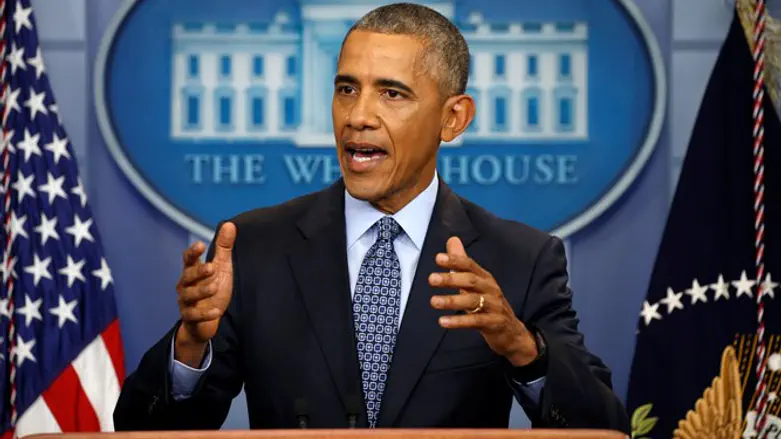
Dr.Ephraim Kam, a Senior Research Fellow at the Institute for National Security Studies (INSS) sat down with Arutz Sheva to discuss the legacy outgoing US President Barack Obama leaves behind on his last day in office.
"We need to examine what Obama received [when he took office] eight years ago. The Middle East, Europe, Russia, and relations with the West. All of these elements have undergone significant changes. The Arab Spring became a disaster after another disaster, and Obama had quite a failures which contributed to this." Dr. Kam said.
According to Dr. Kam, Obama "was hesitant in his policies on Iraq and Syria and on how to handle ISIS. The Russians captured [the initiative] on a number of these issues, and instead of dealing with them [Obama] left them to the Russians and the Iranians. And the US became merely a secondary factor. Russia [acted as if] it had become a superpower while dealing with Syria while the US has not fulfilled its role."
Dr. Kam laid part of the blame for the rise of ISIS at Obama's feet. "When he came to power there were tens of thousands of American soldiers in Iraq, and then the US troops pulled out and they slowly lost control of what is happening in Iraq and there ISIS was practically built. He did not handle either the Iranian or the Iraqi issue properly and left the arena to his Russian rivals."
He said that Obama's faith in the nuclear agreement with Iran was for the short term. "He believes in the agreement, and Iran's nuclear program was indeed rolled back. It would not be so bad for Israel if it would stay rolled back, but in seven years the restrictions in the nuclear agreement will be removed, and then Iran can build and accelerate a full nuclear program and it will be even more severe."
He accused Obama of naivete with regards to the Middle East. "The Cairo speech came from an innocent misunderstanding that the Arab world would pursue democracy, and it didn't happen. And in this regard all the good friends of the US, Israel, Egypt, Saudi Arabia, have a lot of harsh criticism for the conduct of Obama in the Middle East. Obama thought his nuclear deal would cause Iran to moderate, but that didn't happen. He leaves behind a weaker US, which is less of superpower [than it was before]. The US is weaker and Russia is much stronger."
However, Dr. Kam insisted that Obama was not anti-Israel. "He is not anti-Israel, even if he has done some things we did not like. But there was personal animosity between him and the Prime Minister. We should remember that he gave generous aid to Israel. But the personal confrontation exacerbated the misunderstanding, which in the end led to the step he took in the Security Council which was very harmful to Israel, and gives off the stench of the personal hostility. It has been roundly criticized, even by quite a few Democrats."
